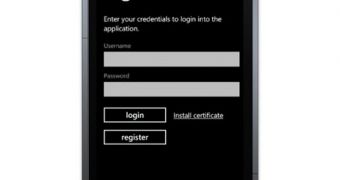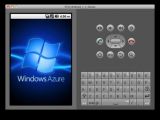When it comes to the development of great applications for mobile devices, Microsoft seems to look major platforms the same way, and the latest move it makes in this direction is a proof of that.
The company has just announced the upcoming availability of a new Windows Azure Toolkit for devices running under its own Windows Phone platform, as well as of a release for those powered by Google's Android OS, which follow the immediate release of Toolkit 1.0 for iOS.
Using these resources, developers can easily come up with applications that can deliver great experiences on unique devices that run under various mobile platforms.
Windows Azure Toolkit for Windows Phone was launched last month, and should be released in a new version, 1.2, with new developer features
In the following two weeks the toolkit would bring integration with the Windows Azure Access Control Service, or full support for Windows Azure Storage Queues, as well as a new interface, with support for Web application.
Available only in a prototype preview at the moment, the Windows Azure Toolkit for Android should arrive in summer, bringing similar functionality as the one available for iOS and Windows Phone.
The mobile application segment is ever expanding, being expected to reach impressive new levels in the next four or five year. The mobile apps services market is expected to exceed $7 billion, Forrester notes.
Thus, Microsoft is delivering the tools that enable developers leverage the cloud to target different devices with their apps. Thus, a unified cloud-to-mobile user experience would be created, and some companies are already taking advantage of this, Groupon included.
“As a common back-end, developers can use cloud services to share common requirements like device notifications, authentication, storage and even higher-level services like leaderboards,” Jamin Spitzer Senior Director, Platform Strategy, Microsoft, explains in a blog post.
“At the same time, developers can maximize the performance of each mobile device by writing client code that exploits each platform. As more and more mobile applications rely on back-end services, the cloud can become increasingly useful and strategic for developers.”
The Windows Azure Toolkit for Windows Phone 7 v1.1.0 is available fro download from here.

 14 DAY TRIAL //
14 DAY TRIAL // 
